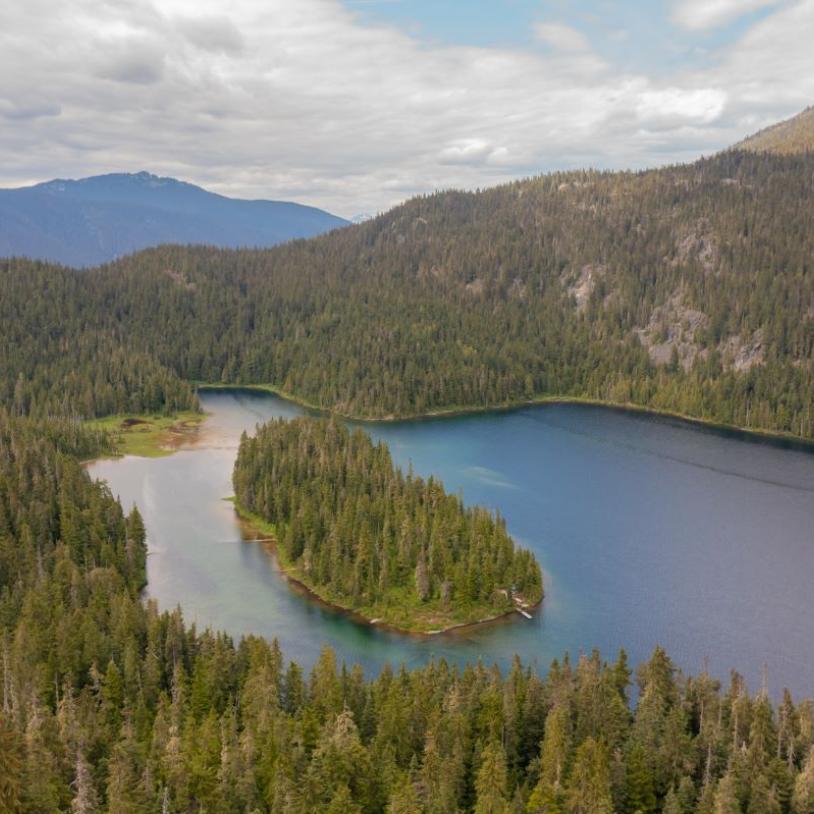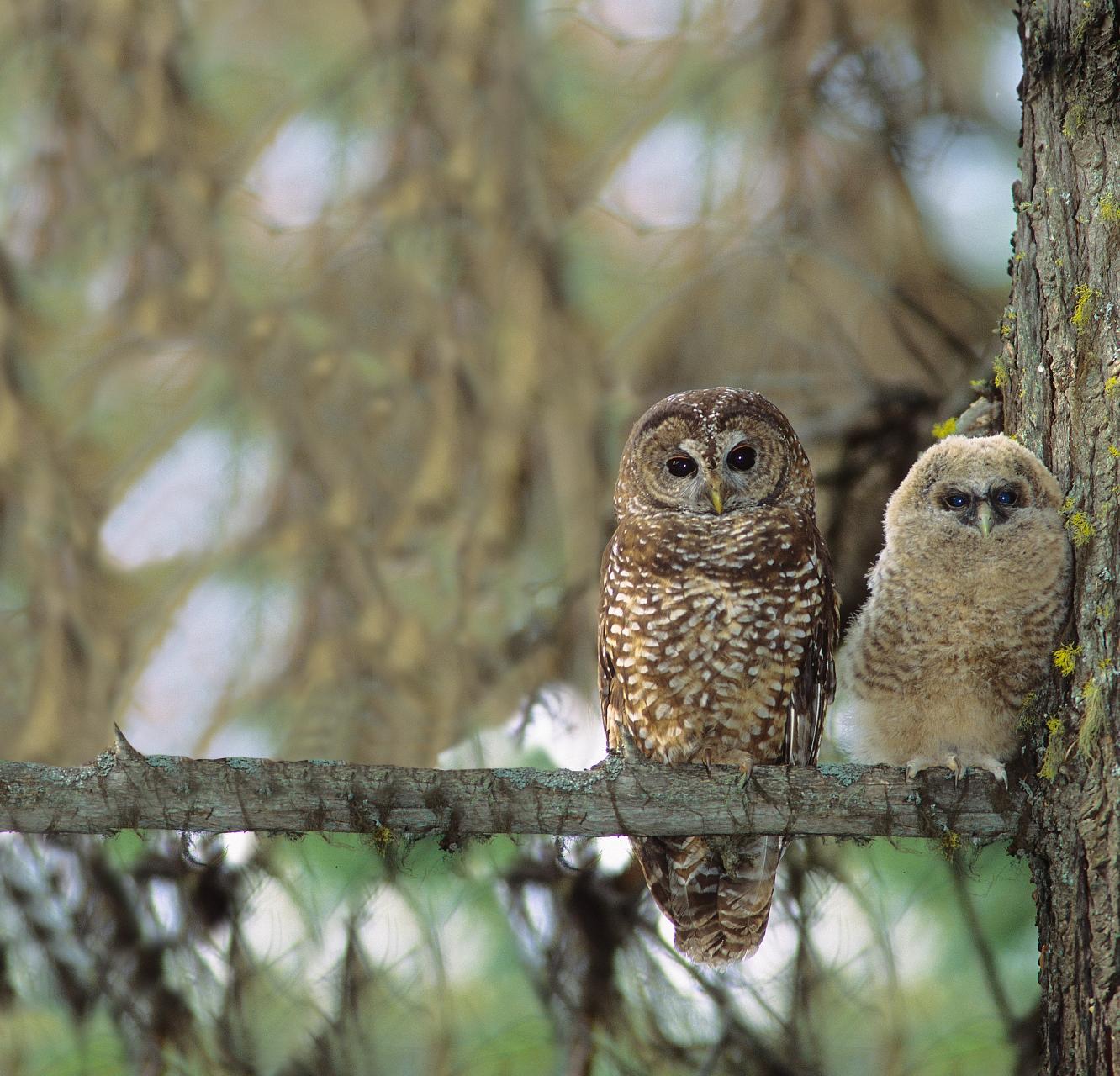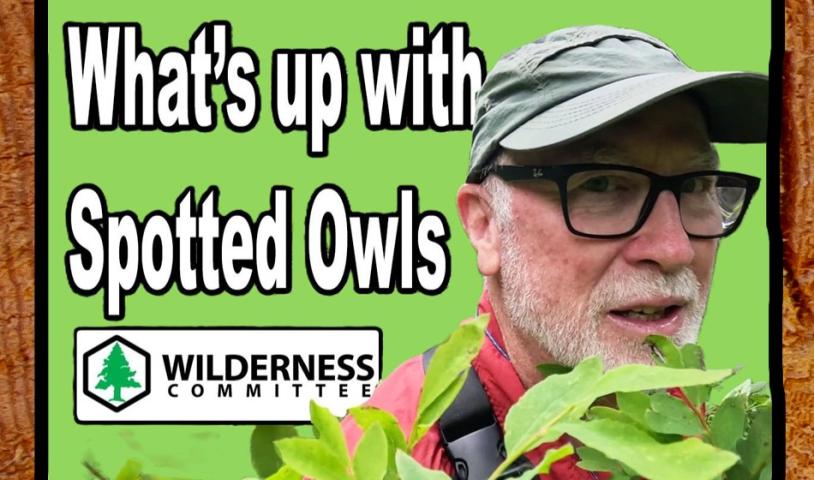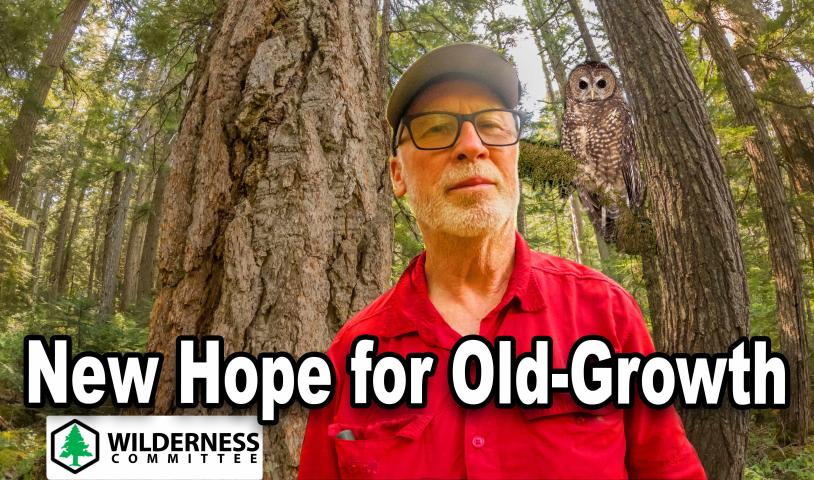Significant step for spotted owl as final recovery strategy is published following nearly two‑decade delay
Monday, June 9, 2025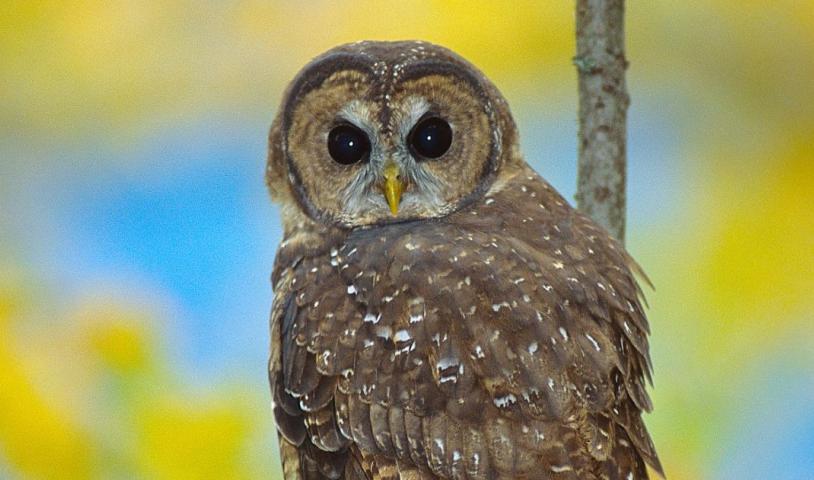
Wilderness Committee and Ecojustice mark milestone for at-risk species protection in Canada
VANCOUVER / UNCEDED xʷməθkʷəy̓əm (Musqueam), Sḵwx̱wú7mesh (Squamish) and səlilwətaɬ (Tsleil-Waututh) TERRITORIES — After nearly two decades of tireless advocacy and ongoing litigation by First Nations and environmental groups in B.C., the federal government has at last released a final recovery strategy for the near-extirpated spotted owl under the federal Species at Risk Act (SARA). With only a single wild-born spotted owl remaining in the wild in the country, this publication marks a long-overdue milestone in the fight to protect one of the rarest birds in Canada.
“I never thought I’d live to see the day — and the spotted owl almost didn’t either. The recovery plan calls for the protection of over 4,000 square kilometres of forests within a day’s travel of Metro Vancouver. Now, there is hope we’ll get B.C. to finally stop allowing logging in the forest home of the spotted owl so the species can actually recover and thrive.”
- Joe Foy, Conservation and Policy Campaigner
This publication is the result of an 18-year legal and grassroots effort led by the Wilderness Committee, represented by environmental law charity Ecojustice, and Spô’zêm Nation. Over the years, the groups have fought both inside and outside the courtroom to raise awareness of the federal and provincial governments’ failure to uphold SARA and protect the owl’s old-growth forest habitat from industrial logging and mismanagement.
This long-delayed step follows a string of recent legal breakthroughs, including a Federal Court ruling in June 2024 which found that the Minister of Environment and Climate Change acted unlawfully by delaying an emergency order recommendation to cabinet for over eight months, despite having determined the spotted owl faced imminent threats to its survival and recovery.
The preparation of a recovery strategy is one of the most important steps in protecting species under SARA because it defines and identifies a species critical habitat — the habitat necessary for a species’ survival and recovery. The proper identification of critical habitat in a final recovery strategy is a precondition to the protection of that habitat under other sections of SARA. While Ecojustice and Wilderness Committee celebrate the publication, they are still in the process of assessing the recovery strategy to ensure it meets the requirements of SARA and can be used to effectively inform subsequent decision-making for the Spotted Owl.
“The publication of the amended recovery strategy shows us that the spotted owl’s recovery is still biologically and technically feasible — we now call on the provincial and federal governments to take tangible steps to protect the species’ habitat from destruction,” said Rachel Gutman, Ecojustice Staff Lawyer.
As of March 2024, there were 37 known spotted owls in British Columbia: the wild-born individual, two owls released from a breeding facility into the wild in July 2023 and 34 owls in a breeding facility. The recovery strategy aims to restore a stable population of at least 250 mature individuals within 50 years. However, the government of B.C. is actively logging the critical habitat of the owl. For the spotted owl to survive and recover, logging of critical habitat must stop immediately.
“Two weeks ago I was out on the ground documenting the latest logging destruction in spotted owl critical habitat. The publication of this recovery strategy must be followed by an immediate end to all logging permitted by the B.C. government in the owl’s habitat.”
- Joe Foy, Conservation and Policy Campaigner
The release of this recovery strategy is another step in the decades-long battle to uphold endangered species protections — and a testament to the persistence of Indigenous leadership, environmental watchdogs and communities fighting to safeguard biodiversity.
- 30 -
For more information, please contact:
Joe Foy | Protected Areas Campaigner
604-880-2580, joe@wildernesscommittee.org
Shayoni Mehta | Ecojustice Communications Strategist
604-685-5618 ext. 249, smehta@ecojustice.ca
